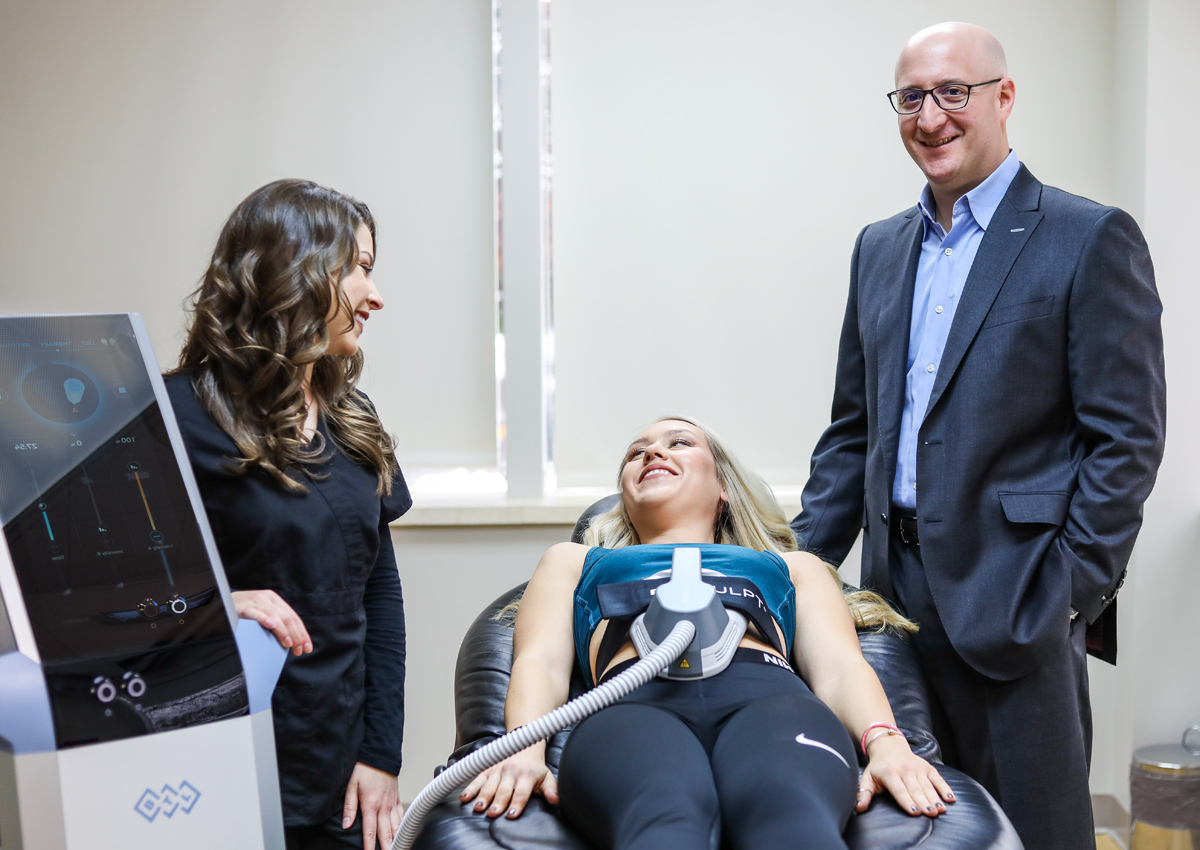Soft Tissue Fillers
Conveniently located to serve Nashua, NH
When you smile, laugh, frown, or look puzzled, you contract the muscles of your face. Over time, these contractions produce permanent furrows and deep wrinkles in the skin, especially around the eyes and mouth, between the eyebrows, and on the forehead. These lines can make you look older, sad, angry or tired. Dermal fillers can not only prevent you from deepening these lines during natural facial movements, they can also erase these marks of aging, leaving you looking younger and refreshed. Dermal fillers are FDA-approved and safe for use by most patients. Many of the fillers are made from substances found naturally in the body, or synthetically made to mimic natural substances or stimulate collagen production. These fillers are injected directly into the skin of the targeted area to restore volume and reduce the appearance of fine lines and wrinkles. At Waldman Plastic Surgery and Dermatology, we offer patients several different dermal filler options in order to provide the best possible results for their individual needs. Our board certified providers, Drs. Cheryl and Jeremy Waldman personally perform all injection procedures.An exceptional team
Dr. Waldman and staff, Thanks so much for helping my family and I get through this past year. You are all truly amazing individuals that make an exceptional team.KC
Filler Treatment DO’s and DON’Ts
BEFORE TREATMENT- Avoid using aspirin, nonsteroidal anti-inflammatory medications (such as ibuprofen), St. John’s wort or high doses of vitamin E supplements. These agents may increase bruising and bleeding at the injection site.
- Talk with your healthcare professional if you have previously suffered from facial cold sores. He or she may prescribe a medication to minimize recurrence.
- Use cold compresses to reduce swelling.
- Avoid exposure to intense heat (sun lamp or sunbathing) or cold.
- Reduce the risk of facial cold sore recurrence that could be caused by needle punctures. Talk with your healthcare professional about medications that may minimize the likelihood of an outbreak.
- Avoid taking aspirin, nonsteroidal anti-inflammatory medications (such as ibuprofen), St. John’s wort or high doses of vitamin E supplements. These agents may increase bruising and bleeding at the injection site.
- If you’ve received a treatment in the back of your hands, avoid heavy or strenuous use of your hands immediately following treatment.
- After treatment, you might have some swelling, redness, pain, bruising, headache, tenderness, lump formation, itching at the injection site and impaired hand function. These are typically mild in severity and normally last less than 7 days in nasolabial folds and less than 14–18 days in lips. Swelling may be more likely in patients under 36 years, and bruising may be more likely in patients over 35 years.
- Remember to ask about follow-up appointments.





